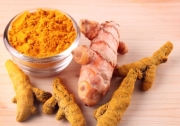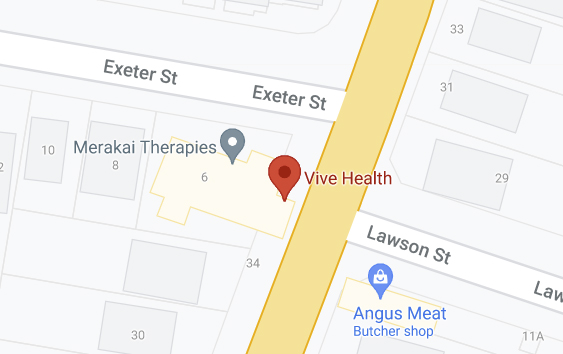Excerpts of this article are taken from an excellent paper written by Naturopath Lena Moynihan. Lena’s paper is a thoroughly researched piece that was written on an accepted theory that inflammation is at the core of mood disorders and contributes to chronic disease development and progression. Please contact us if you would like any of the references for this paper.

Introduction
Depression is among the most widespread and costly mental health disorders. An estimated one in six men and one in four women will experience depression across their lifespan (Slavich & Irwin), with a significant risk of episodic recurrence, promoting long-term burden, distress and disability (Deshpande et al). It is associated with reduced quality of life and functioning, medical morbidity and mortality (Bromet). Risk factors implicated in the onset and maintenance of depression are abundant, and include socioeconomic factors like gender, age, employment, living environment, marital status or financial strain, alcohol or recreational drug use, anxiety, disabilities, physical conditions, significant trauma or stress, and a family history of psychological issues (Bottomley).
Theories regarding depression have been dominated by the hypothesis, which suggests that imbalances in serotonergic and dopaminergic neurotransmission are central to the pathogenesis of depression (Massart). Interestingly, antidepressant efficacy requires long-term administration, indicating that their short-term effect on monoamine neurotransmission is not directly implicated in their clinical effectiveness (Massart). Moreover, a substantial number of patients are unable to achieve clinical improvements on standard anti-depressants (Murrough).
An extensive body of literature implicates chronic low-grade inflammation and cell-mediated immune activation in mood disorder (depression) disease progression (Berk et al).
Inflammation and Cell-Mediated Immune Activation
Depression is characterised by significantly elevated proinflammatory mediators including interleukin (IL)-6, tumour necrosis factor (TNF)-α and IL-1 (Leonard & Maes). Pro-inflammatory cytokine elevations positively correlate with depressive symptom severity (Renoir).
As well, subjects experiencing depression were shown to have lower levels of vitamin C, zinc, coenzyme Q10, vitamin E and depleted omega-3 (Maes et al).

Psychological stress and changes to hormone production are implicated in depression (Foster & McVey Neufeld). Moreover, early-life stress can induce persistent abnormalities in the secretion of hormones, and alter the stress response in adult life (Baes et al.). The gut microorganisms are implicated in both programming the instructions for the production of hormone secretions in early life, and in stress reactivity across the lifespan. Psychological stress promotes what is known as leaky gut which increases bacterial leakage and interactions with both immune and nerve cells (Foster & McVey Neufeld).
It is hypothesized that in depression, higher levels of inflammation leads to hyperactivity of the gland system responsible for hormone production possibly through proinflammatory cytokines (Carvalho et al). In treatment-resistant depressed subjects, inflammatory pathway activation correlates to the hyperactivity of hormone producing glands and the resistance of the receptor sites that are responsible for accepting the hormones at their needed location (Carvalho et al).
Summary
In summary, these observations highlight the importance of balancing suppression and induction of neuroinflammation in the maintenance of healthy central nervous system function (Yamato et al). Correcting and reversing inflammatory conditions may produce significant antidepressant effects (Maes et al). Nuclear factor erythroid 2 related factor (Nrf2) is an important protein located in every one of our cells and when released and activated it is a powerful antioxidant and significantly reduces inflammation. Curcumin (turmeric), the active constituent of Curcuma longa, specifically activates Nrf2 and hence will be investigated for its potential use in depression (Scapagnini, Caruso & Calabrese).

Research regarding the anti-inflammatory activity of curcumin is extensive and it has been shown to down-regulate inflammation. Curcumin modulates countless cell signalling pathways (Gupta, Patchva & Aggarwal 2013, p.195) and has demonstrated significant antioxidant, anti-inflammatory, anti-carcinogenic and antiviral properties (González-Reyes et al. 2013).
Application in Depression
Curcumin has demonstrated significant antidepressant activities in animal as well improving the release of Nrf2. Moreover, curcumin may ameliorate stress-induced reductions in brain-derived neurotrophic factor, attenuate neurodegeneration (Lopresti, Hood & Drummond), and promote neurogeneration in vivo.
In vivo research suggests curcumin may demonstrate monoaminergic activity with increased serotonin and dopamine, and possibly norepinephrine, following chronic and acute stress (Bhutani, Bishnoi & Kulkarni). Moreover, in vivo curcumin acts synergistically with antidepressant drugs and subsequently may be advantageous in treatment-resistant depression (Kulkarni, Bhutani & Bishnoi).
Clinical Trial
A recent 6-week randomised controlled parallel 3-armed trial compared the efficacy and safety of curcumin with fluoxetine aka Prozac (antidepressant medication) in subjects with depression (Sanmukhani et al.). Group I received 20mg of fluoxitine daily, group II received 500mg of BCM-95 twice daily (880mg of total curcuminoids), and group III received the combined intervention. The response rate according the the Hamilton Depression Rating Scale (HAM-D) was 64.7% in group I and 62.5% in group II. Accordingly curcumn demonstrated comparable efficacy to fluoxitine from baseline to 6-weeks. Moreover, the response rate fell within the recognised range of current antidepressants (31.6-70.4%). While group III demonstrated a trend towards greater response rate (77.8%), the difference between the three groups at week 6 was statistically insignificant (p=0.58). 52.9% of subjects in group I achieved remission compared to 37.5% in group II and 55.5% in group III (p=0.53) (Sanmukhani et al. 2014, p.583).
Collectively, Sanmukhani et al (2014) provide convincing evidence for the use of curcumin alone, or in conjunction with selective-serotonin reuptake inhibitors in the management of MDD.
Conclusion
Emerging evidence suggests chronic low-grade inflammation and cell-mediated immune activation are implicated in the pathogenesis of depression (Berk et al.). Interestingly, depression is characterised by altered functioning in inflammatory pathways, activation of immune system, oxidation, mitochondrial function and increase in free radicals (Leonard & Maes). This report details these aberrant pathways and highlights the importance of balancing the suppression and induction of neuroinflammation in the maintenance of healthy CNS function (Yamato et al.).
Nrf2 is considered a novel target for the reduction of neuroinflammation and oxidative stress in depression. Increasing the consumption of apples, berries, broccoli, brussel sprouts, cauliflower, onions, cocoa, herbs, tea and red wine has been shown to increase activation of Nrf2. As well as moderate exercise, herbs shown to activate Nrf2 include Curcumin, garlic, green tea, ginger, rosemary and grape seed extract.

